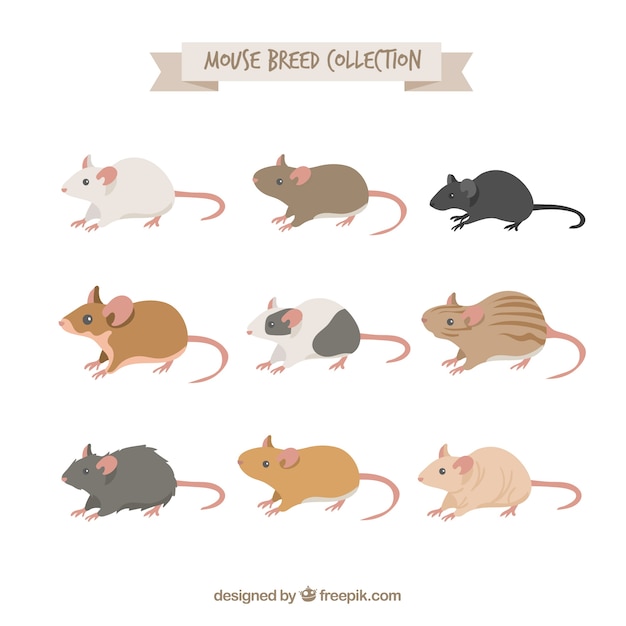Interesting Mouse Facts

Mice have excellent hearing, which helps them detect predators.
A mouse’s tail is nearly as long as its body and serves as a balancing tool.
Mice can fit through holes as small as a dime.
Mice are scavengers and will eat almost anything they can find.
The average mouse can have up to 150 offspring in a single year.
Mice have a well-developed sense of smell, which they use to navigate and communicate.
Mice can jump over a foot high.
Mice have poor eyesight, relying more on their other senses.
Mice have been domesticated and kept as pets for centuries.
Mice are known for their ability to reproduce quickly.
Mice are nocturnal animals, preferring to be active during the night.
The lifespan of a mouse is typically only 1-2 years.
Mice have sharp incisor teeth that grow continuously throughout their lives.
Mice are excellent climbers and can scale walls and trees with ease.
Mice communicate through ultrasonic vocalizations that are inaudible to humans.
Mice have a high reproductive rate due to their short gestation period and quick maturation.
Mice build intricate nests using materials they find in their environment.
Mice are very agile and can squeeze through tight spaces.
Mice have been used extensively in scientific research due to their genetic similarities to humans.
Mice have a strong sense of curiosity and explore their surroundings.
Interesting Mouse Facts part 2
Mice have the ability to learn and remember complex mazes and tasks.
Mice are social animals and live in groups called colonies.
Mice have an excellent sense of touch, using their vibrissae (whiskers) to navigate in the dark.
Mice play an important role in the ecosystem by controlling insect populations.
Mice have a high metabolic rate, requiring them to constantly search for food.
Mice can produce a wide range of vocalizations to communicate different messages.
Mice have a natural fear of open spaces and prefer to stay close to walls and other hiding spots.
Mice are known for their ability to chew through materials, including wires and cables.
Mice have a natural instinct for hoarding food and creating caches in their environment.
Mice have a strong homing instinct and can find their way back to their nests from great distances.
Mice have been bred and trained to perform in various circus acts.
Mice have a highly developed sense of balance, which allows them to navigate narrow ledges and tightrope-walk.
Mice have a keen sense of danger and can quickly retreat to safety.
Mice have been used as subjects in behavioral studies to understand human psychology.
Mice are capable of showing empathy towards other mice in distress.
Mice are not only found on land but can also live in aquatic environments.
Mice play an important role in seed dispersal as they carry and bury seeds for future growth.
Mice are highly adaptable animals and can survive in a variety of habitats.
Mice have a unique courtship ritual that involves chasing, wrestling, and vocalizing.
Mice are known for their ability to squeeze into tiny spaces to find shelter.
Mice have a preference for sweet-tasting foods and can detect sugar at very low concentrations.
Mice have a strong maternal instinct, caring for their offspring until they are old enough to fend for themselves.
Mice have a high metabolism and can eat up to 15-20 times their body weight in a single day.
Mice are excellent swimmers and can stay afloat for extended periods of time.
Mice have a strong sense of territoriality and will defend their nests vigorously against intruders.

